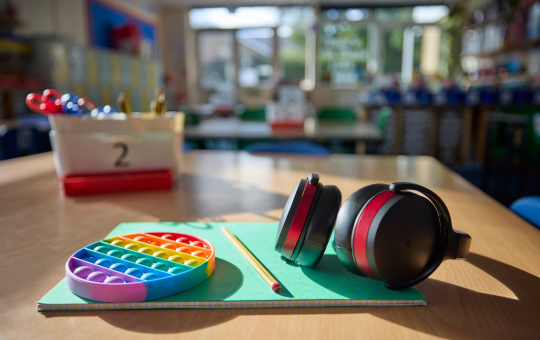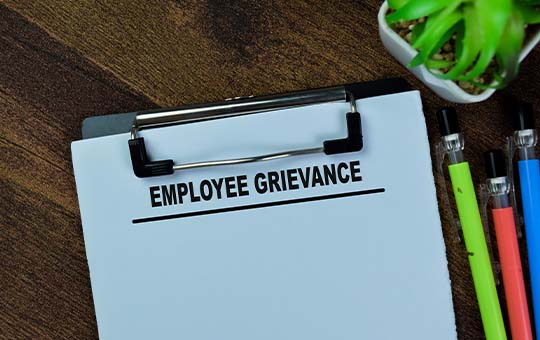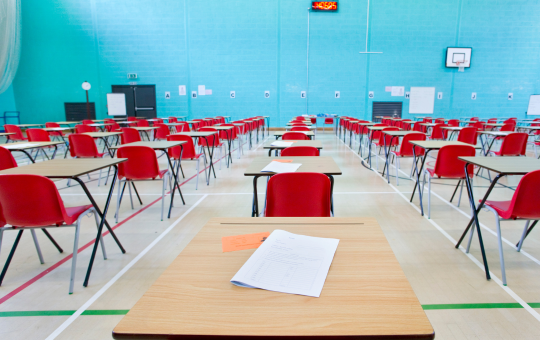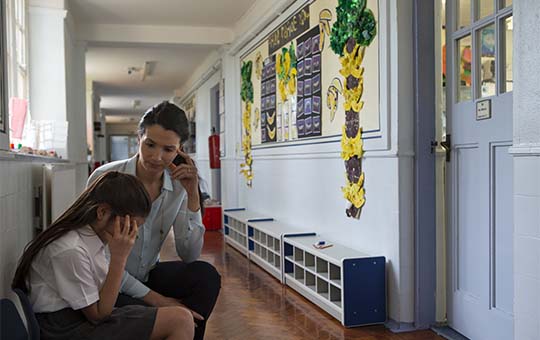With the UK general election set to take place on the 4th July, we thought it prudent to take a look at what the parties have planned for education.
Polling suggests that the Labour party will, in all likelihood form the next government, so we’ll start by looking at their manifesto and what changes they will make to education and contrast it to what the Conservative party is promising.
It’s important to recognise that whichever party is in power, it’s unlikely that any significant reforms will be made in the first year. But it’s still crucial to have a solid understanding of what each party aims to do.
Labour Party Manifesto: At a Glance
First, we must recognise that greater opportunity requires greater security. Tackling economic insecurity – at work, at home, in our communities and public services – is the golden thread that runs through all of Labour’s missions. On that secure foundation, we can build an education system that prepares our children for life, work, and the future.
In their manifesto, which can be read here, Labour have committed to ‘breaking down barriers to opportunity’ via the following pledges:
• Recruit 6,500 new expert teachers in key subjects
• 3,000 new primary school-based nurseries
• Free breakfast clubs in every primary school
• A modern curriculum so young people are ready for work and life
• High-quality apprenticeships and specialist technical colleges
These are direct pledges from labour, with the first three being very specific. The last two may not be contain as much information as the others but they do lay out a blue-print of their ambitions for the education sector and allow them to formulate their vision of what a modern curriculum or high-quality apprenticeships will look like in due course.
It may take a while to introduce some of these policies, but over the course of the term, could we see bigger, more systematic educational reform?
In a recent interview on The Rest is Politics podcast with Alistair Campbell and Rory Stewart, Shadow Education Secretary Bridget Phillipson was asked about whether Labour would bring back the Sure Start programme. Whilst it’s not in their manifesto, Phillipson stated that in an ideal world, and when government finances allow it, they would consider re-introducing the sure start programme, albeit with some reform.
She also pointed out that Sure Start wasn’t in the 1997 manifesto and was brought about after Labour were in government – could that be a sign that more changes will come, if elected?
Comparing these policies to the Conservatives
There are five different areas we can identify in our comparison of Labour and Conservatives. which may or may not impact how Labour approaches them post-electoral victory. However, given their expected number of seats, there will be little pressure on them by the opposition.
The Conservative manifesto can be read here.
Recruitment
Labour have made a big deal of their plan to recruit 6,500 new teachers – in fact it’s one of their six missions. However, there is no mention of whether they will increase teacher’s pay, which would have a huge impact on recruitment and retention.
This is in contrast to the Conservativess, who do not mention recruitment, but do mention pay:
‘From this September, new teachers in priority areas and key STEM and technical subjects will receive bonuses of up to £30,000 tax-free over five years.’
Apprenticeships
There seems to be a consensus on increasing apprenticeships, technical colleges, trade schools, and alternative forms of education and learning. Whilst Labour argues for higher-quality apprenticeships, the Conservative party pledges a specific amount; ‘100,000 high-quality apprenticeships – by curbing rip-off university degrees.’
Childcare
Labour pledges to reform the childcare system, saying that: ‘We will expand our childcare and early‐years system, drive up standards, modernise the school curriculum, reform assessment, and create higher-quality training and employment paths by empowering local communities to develop the skills people need.’
With the promise of 3,000 new school-based nurseries, they are on their way to, at the bare minimum, expanding nursery schooling, potentially easing the strain on nurseries in some areas.
However, once again, aside from pledging to build more nurseries, when it comes to actual childcare reform or modification, Labour are ambiguous about this. As with many parts of the manifesto, Labour are avoiding backing themselves into a corner by promising something that they may find unfeasible or less important in comparison to other policies if they have come into power.
On this, the Conservatives have pledged to roll out the 30 hours of free childcare a week, currently eligible to working parents of 3 year olds, to children as young as 9 months old. There’s no doubt that this will be an attractive policy for a lot of families, given the astronomical cost of childcare – especially crucial in a cost of living crisis.
Labour also pledges to introduce free breakfast clubs in all primary schools. With an estimated 21,000 primary schools in the UK and the clear link between disadvantage and opportunities, this could be a game changer.
Curriculum
Changes to the curriculum by prospective parties is always to be expected. However, what is of interest is exactly how these changes will be implemented, and in what form.
We can safely assume that, by reading between the lines, that Labour will further – to directly quote them - ‘modernise’ the curriculum. This likely means one of two things; either that they will focus on a curriculum with a progressive, modern liberal approach to the curriculum, or that they will introduce new learning methods and approaches to schooling.
The Conservatives are seeking to introduce more Physical Education hours, as well as a change to 16–19-year-old education by introducing the ‘Advanced British Standard, a new approach to 16-19 education which will build on the best of A Levels and T Levels,’ which seeks to bridge the gap between academic and technical education. This is an aspect of Labour’s policies that we will have to wait and see exactly how it pans out, either leading to a soft or hard reform of later-stage education.
Other parties and their manifesto’s
Reform Party
Reform’s manifesto - or, as they say, their ‘contract’ with the people - has one of the more in-depth approaches to education reform. From an overhaul and change of direction of the curriculum, tax-relief for independent schools to incentivise families to send children there to ease state schools, to cutting interest on student loans and cutting funding to universities that breaches free-speech, to forcing universities to provide 2-year undergraduate courses to reduce student loan and get young people into work sooner.
This is where you see the biggest difference between a winning party’s manifesto pledges and a party that knows it hasn’t got a chance. Reform are utilising their ‘contract with the people’ to position themselves as a new party – and opposition – with clear identity and clear policies. The almost certified winners, the Labour party, are keeping their policies somewhat close to heart, not tying themselves down to specific changes like the smaller parties can afford themselves.
You can read their ‘contract’, here.
Liberal Democrats
The Liberal Democrats have a similar approach to both Labour and Conservatives, seeking to inject slightly more funding than Labour, into several different avenues: from extending free school meals to all children in poverty, to better teacher training, to extending pupil premium to 16-18 year olds, and to increasing more funding per pupil.
They are also committing almost £2 billion for vital school repairs and maintenance, something that has been looked at by both Labour and the Conservatives, and may find a home in new education legislation implemented by Labour.
They are also focusing on teacher recruitment and retention, promising to increase funding and change legislation and teaching approaches to further support struggling teachers.
The Liberal Democrats have a very in-depth breakdown of their education pledges that can be read here, which, considering they will be the 3rd largest party by seats, could provide, at the bare minimum, a slight push for, and backing of, some of these policies over the next five years.
Green Party
With an estimated budgetary cost of £13 to £14 billion, The Green Party may have the most interesting – and radical – changes to the education system.
To quote them, below are their pledges:
• An increase in school funding of £8bn, to include £2bn for a pay uplift for teachers.
• Supporting every higher education student, with the restoration of grants and the end of tuition fees.
• Ending high-stakes testing at primary and secondary schools and abolishing OFSTED.
It is unlikely the Green Party – who will likely have a similar amount of seats to Reform, that being only a few – will be able to leverage any kind of significant opposition to Labour.
However, just like with the Reform Party, it is possible that they could be contenders by the end of this decade.
You can read their manifesto here.
Other Parties
The other regional parties – such as Plaid Cymru, The Scottish National Party, Sinn Feinn, and the Democratic Unionist Party – will not be discussed here due to their specific focus on their home countries, however, clicking on each of their name’s will take you to their website, where you can view their policies.
In Summary
If the polls are right and the Labour Party win the election by a landslide, they’ll be able to pass through legislation without much challenge. Given the current crisis’ facing schools, including the significant issues around recruitment, pay, funding, behaviour and attendance, let’s hope that whatever the outcome, we see greater investment in this crucial sector – for teachers, pupils and society alike.
.png)



































































































































